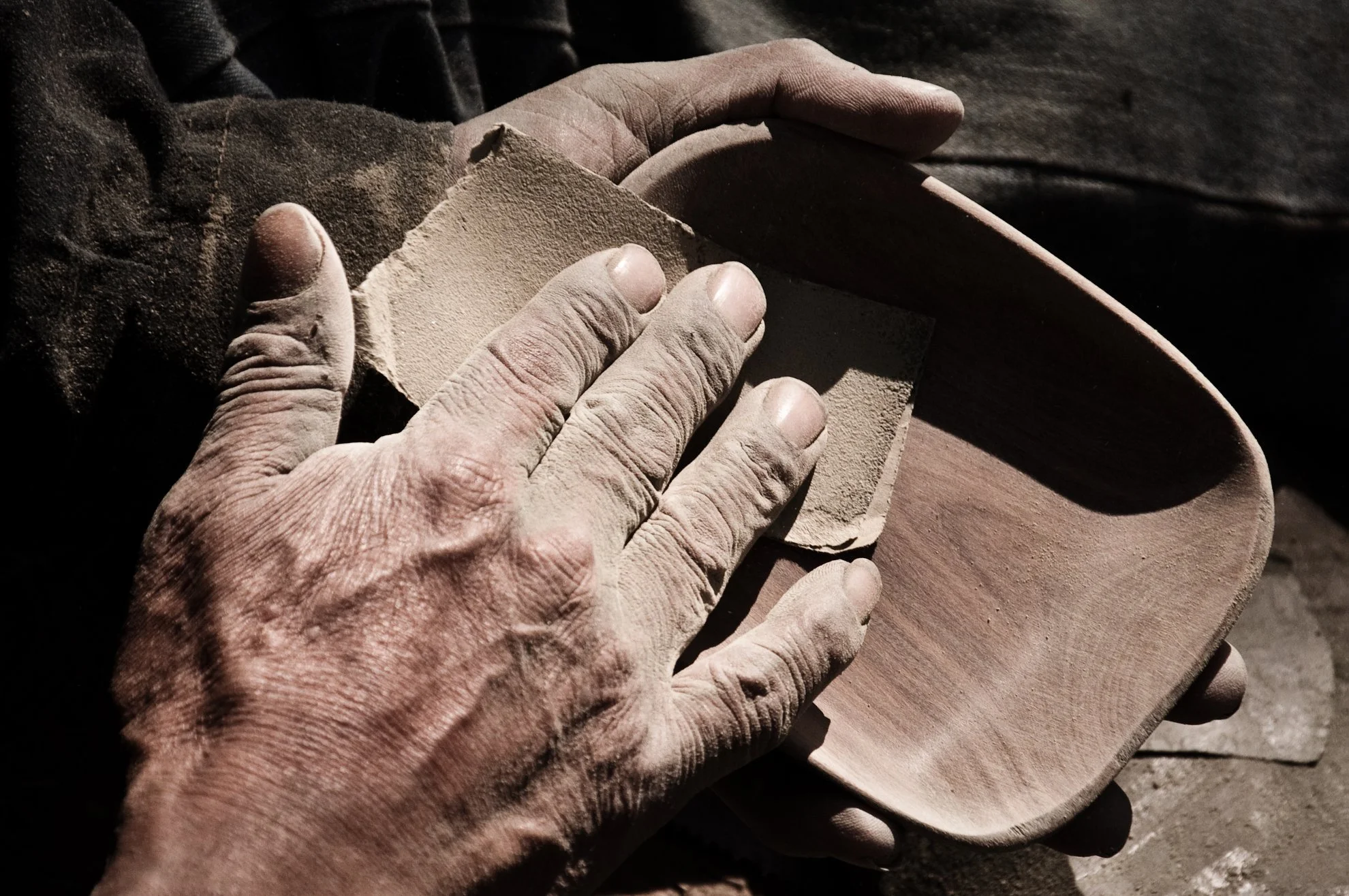Wichi Community
The Wichi Community inhabits a large region of native forest called ‘El Impenetrable’, in the province of Chaco, northern Argentina. They are hunters, fishermen and gatherers who, thanks to their millennial wisdom, made use of the abundant nature around them without destroying it. For them, Nature is the main provider, which nurtures and meets all their needs.
Despite the colonization, the devastating exploitation of the forests they inhabit, and the steady loss of their cultural identity, the Wichis put up stiff resistance and they have kept their mother tongue and cultural heritage alive. They work weaving crafts with chaguar fiber, carving out palo santo (a type of tree) and producing utilitarian pottery.
The Chaguar process
The chaguar plant resembles the yucca or aloe vera with sword-shaped evergreen leaves. For countless generations, indigenous Wichi women have mastered the skills necessary to obtain the chaguar fiber from its tough leaves.
They go into the forest with machetes or sticks to collect the wild harvest. They choose the leaves, remove the thorns and peel them, separating the fibers from the outer part. Then, they process the chaguar fibers in a traditional method that includes cleaning, crushing, scraping, and repeatedly soaking them in water to soften them up. Afterwards, they hang them on branches to dry. Once dry, the fibers are spun into threads by ‘spinning’ them on their thighs with ash-impregnated fingers until a strong and resistant thread is achieved. These threads are then dyed with natural pigments obtained from plants, roots, seeds, and fruits. A long process, full of patience, love and respect for nature.
The work of the chaguar fiber is an exclusive task of Wichí women. Their beautiful designs are inspired by the natural surroundings of rural Argentina and the objects they produce are their source of livelihood.
Palo Santo wood
Palo Santo is one of the greates trasures of the South American forest known as Impenetrable, for its dense and difficult to access biodiversity, in the Gran Chaco region. Due to its intense aroma, it was considered sacred and ceremonial by ancient cultures, who burned pieces of the trunk in shamanic rituals. It grows very slowly, and therefore it’s a precious resource essential to protect. For the last century, the Wichi men have gathered only fallen branches and trees to create aromatic, rustic and smooth hand-carved pieces.
This intentional process preserves living trees, maintaining the balance between man and nature. Each one-of-a-kind piece holds great cultural value, reflecting this harmonious relationship and representing a contribution to both art and environmental protection.






